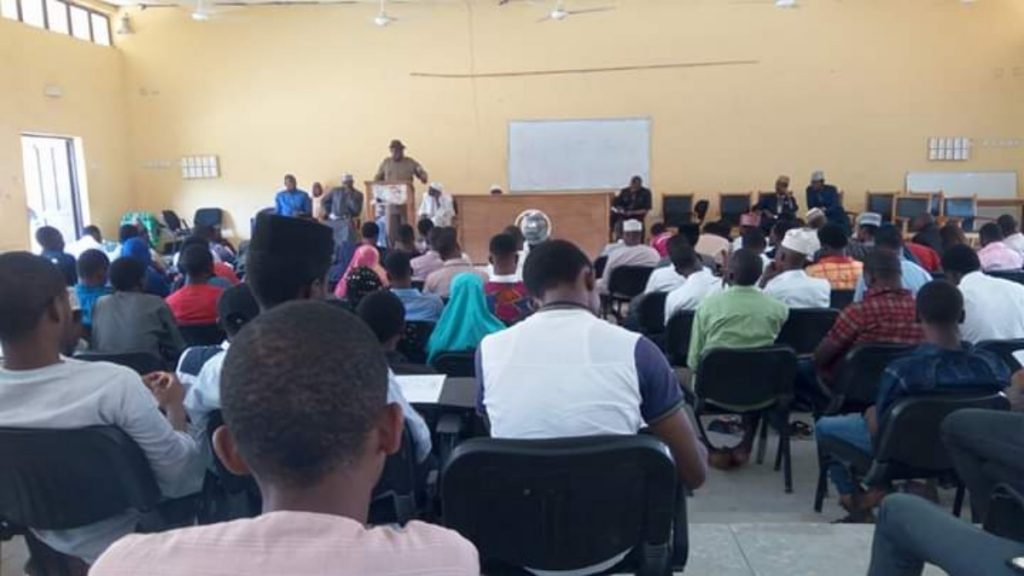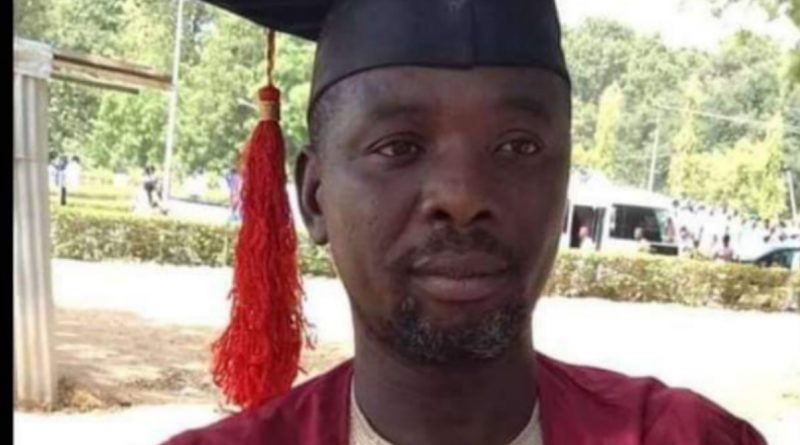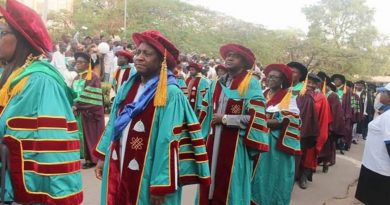Declining Quality Of Basic Education In Nigeria: A Historical Perspective
By Bashir Ibrahim
It is factual and plausible that any investment in education is long-lasting and better than all investments made in other sectors. This is because education is an asset that clue to the provisions of all human needs.
Education liberates society out of ignorance and poverty. It makes people be fully aware of their persons, environment, and act in a more constructive and productive fashion. In fact, somebody cannot be good, moral, responsible, and upright without education. As with it, you become a good farmer, health worker, administrator, or teacher.

A nation cannot achieve any significant and meaningful goal that may lead to its development without according its topmost priority to education. One can say precisely without fear of contradiction that Nigeria is seriously fighting poverty, corruption, desertification, and spread of killer diseases, rural-urban drift, child trafficking, drug addiction, illiteracy, insurgency, unemployment, and many other social vices if it heavily invests in education
It is, however, against this background that the main concern and worry of Nigerian leaders on attaining the nation’s political freedom was educational development. Our great leaders at independence were very much aware of the importance of education to nation-building.
They knew that education would help Nigerian to produce the manpower and personnel needed for the country civil service, for the industries, and for all arms of government. Education was also required to produce more efficient military personnel and police force. They also recognized that education was very useful for developing private businesses and industries.
Thus, tailors, carpenter roadside mechanics were expected to obtain further training and skill through education. But the great obstacle was that education was an expensive social service that requires adequate financial provisions from all tiers of government and other stakeholders for the successful implementation of its policies and programs.
For this reason, the government and other stakeholders must put their hands on deck toward ensuring that there are adequate and equal educational opportunities for all and at all levels.
It is evidently clear that, the seed of Nigerian educational problems has been sown during Shagari civilian administration that came into power on 1st October 1979. This is due to the fact that the administration brought changes that had destructive effects on the Nigerian education system, especially primary education.
The government introduced the policy in which by 1981 the funding of primary education had become completely a state government affair, as the federal government entirely stop pay a part in the sector. The state government in turn handed over the funding of primary education to local government.
Therefore, due to numerous problems of local government administration in Nigeria, the local government officials refused to pay primary school teachers their salaries and allowances. Therefore by 1983 salaries of teachers went unpaid for months in most states of federation, which led to incessant strikes and the closure of schools.
This further resulted in the morale of teachers became very low in such a way there was a drain from the sector to other services and those remained had very low motivation and respect.
ALSO READ: Nigerian Government: “Education is Our Priority” – What an Irony!
Moreover, the introduction of the Structural Adjustment Programme (SAP), by the Babangida regimes further undermined the Nigerian education sector. This is because there was a retrenchment of the workers in the education sector.
The regimes reduced government funding in the education sector, and parents were to bear the burden of their children’s education, and they were unable to pay because of the retrogressive effects of SAP.
Children went to school without the necessary educational materials and motivation, because their parent could not afford to pay it for them. Students who were able to complete their school programme were unable to gain employment. Thus, education lost its potential value.
Correspondingly, since May 1999 in Nigeria, the education sector has experienced disruption as a result of regular failure to release funds, confused priorities, and ceaseless strikes by teachers from primary to university levels.
The government claim to have spent billions of naira on the education sector but there was no evidence of this because there is still the predominance of dilapidated structures at all levels.
As reported by the Analysis Magazine of March 2004 Edition, the Kaduna State Government claims to have spent the sum of ₦8788 million on capital projects in the education sector in 2000 and 2001. But one can hardly see the impact of this expenditure because they are not visible for everybody to see.
Similarly, despite the huge amount of money the government claim to have spent on the expansion and rehabilitation of schools, the school was in horrible need of more classes, offices, libraries, and laboratories.
In boarding schools the assembly halls have been converted into hostels, the schools also suffer from an inadequate supply of waters that is severe during the dry season of the year, and this has serious consequences on school hygienic conditions. Class furniture is so insufficient that four students are compressed on a bench meant for two. In many instances, students were seating on the bare floor
Moreover, in another related development, the seating governor of Niger State, Alh Abubakar Sani Bello (Abu Lolo), few months after his assumption of duty as an executive governor of Niger State, he vehemently decries when he paid a surprise visit to one of the boarding school in the state. He lamented that “the condition of hostels in some institutions especially secondary schools are no habitable even for animals.
In the same way, this resulted for Nigeria to have poor record in education globally; because according to the 56- page report by UNESCO (2014.), author, by Irina Bakova. Nigeria has the highest figure of drop-out-of-school children in the world. That is to say there are more children in Nigeria out of school than any country in the world.
Furthermore, Nigeria is among the worst countries in the world with the highest number of illiterates’ adults. The Democratic Republic of Congo according to the report has the least number of illiterates’ adults, closely followed by Indonesia, then Brazil, Egypt, and Ethiopia.
Furthermore, Against the Education for All (EFA) Goals, Nigeria still falls far behind with 40 million of its adults as illiterates. Thus, contributing heavily to the global adult illiteracy burden of 774 million. The report explains that due to government negligence in this regard made the figure keep increasing since 1985.
Between 1991 and 2008, the figure for adult illiterates rose by 17 million, an increase of 71 %. The report shows that between 2008 and 2011 also adult illiteracy increased by 23 million. This clearly shows that the future of Nigeria looks bleak and uncertain because the quality of the population will be terrible.
It was also predicted that, due to the low quality of education over the years, about a significant number of young people in the country will emerge in the nearest future unable to read even a single sentence after nine years of their basic education.
To address all these problems it is not just teachers that are needed, however, but qualified and trained teachers that are ready for the teaching job. But unfortunately, in 2010, a report presented by the then minister of education, Prof. Ruqqaiyatu Rufa’I to the National Economic Council (NEC) identified a total of 207,813 unqualified teachers in the primary school system throughout the 36 states of the federation. Her findings further indicate that the North-east geo-political zone had the highest figure.
It is also true that it is not El-Rufa’I led government that first exposed and confirmed the high number of unqualified and incompetent teachers in Kaduna State. This is because the UNESCO Report in 2013 lamented that more than 80% of primary school teachers failed the examination in the scheme of primary four pupils.
ALSO READ: Improving university education in Nigeria
This has been acknowledged after a random selection of 1,599 primary school teachers to write the test meant for the primary four pupils. When the examination result was out in 2013, the then commissioner of education in Kaduna State Alh Usman Muhammad shocked Nigerians when he disclosed that 1,300 teachers out of 1,599 randomly selected from across the state, woefully failed test, an examination in the scheme of primary four pupils.
Equally, months before his death the Kaduna State Governor Mr. Patrick Ibrahim Yakowa said that the state had 2,000 teachers with fake certificates and another significant number of teachers are either under-qualified or unqualified to teach in primary school. The question here is that how the students could do it when their teachers do not know it?
In another similar, narration in 2008 according to UNESCO Report also, the primary school teachers failed the same examination in Kwara State. Because when the result made available to the general public, the then commissioner of education Science and Technology of Kwara State, Alh Bolaji Abdullahi reported having said that about 259 teachers in the state who sat for primary four examinations scored zero in the test.
Only 7 out of 19,125 teachers possessed the minimum knowledge to pass the said examination, although from among them 2,628 hold a university degree, only 1 of them achieved the threshold while 10 others were among those who scored zero in a test. The full episode was fully covered and explained by “The News Magazine” of 3rd February 2014 Edition.
Thus, there is an urgent desire to make primary education in Nigeria free from devastating and shattering activities of incompetent and unqualified teachers in the name of the teaching of our children not only in Kaduna State but the Nation at large. This is a task that must be done!!!
In conclusion, the dilapidated structures of our educational institutions couple with the incompetent and unqualified teachers at the grassroots level are dangerous to the development of our nation. Therefore, every stockholder most put their hand on deck to perform his/ her expected responsibilities to save our educations from the final collapse.
With the growing demand for education from our teeming populace, government alone cannot overcome all the multifaceted problems that is about to take our educational institutions to the verge of final downfall.
Other educational stakeholders should come into their normal sense to know that most of our today leaders and senior civil servants who benefited largely from the patriotic commitments of the political leaders of the past have hijacked and subverted the development of our education to serve their selfish interest.
The government should also provide a peaceful atmosphere for every stakeholder to perform their expected role for education to grow for the benefit of all.
BASHIR IBRAHIM (a.k.a IBN KHALDUM), Ibrahimbashir185@gmail.com, 08136159151
For Advert Placement, Sponsorship, support, Article submission, suggestion, etc, Contact us: info@theabusites.com, +2349015751816 (WhatsApp)








